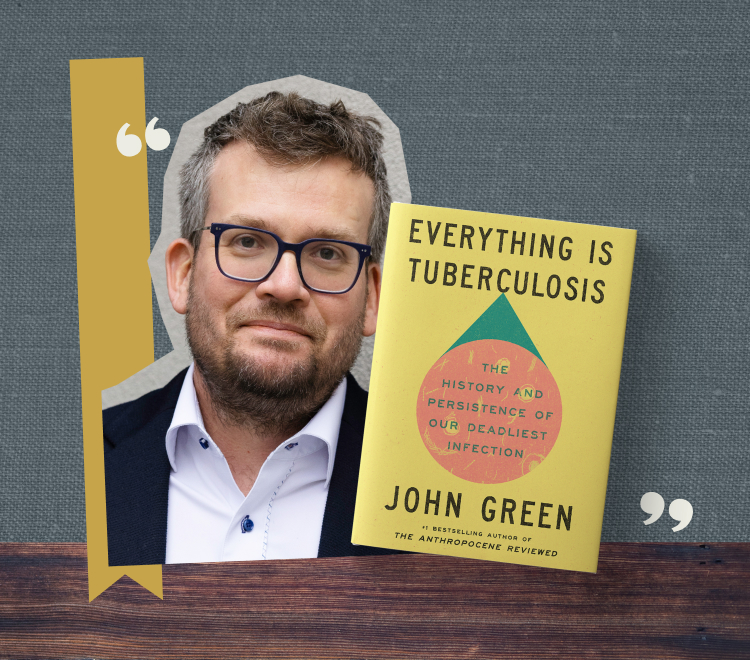Why the ABK Team loves this book:
“Looking at history through any single lens creates distortions, because history is too complex for any one way of looking to suffice,” John Green writes in Everything Is Tuberculosis where he offers another lens through which to view human history: the history of disease. When John met Henry, a teenage tuberculosis patient in Sierra Leone, he embarked on a journey to understand a disease that, in some parts of the world, is seen as something of the past, and in other parts, is a present threat and a daily reality.
Everything Is Tuberculosis tells a scientific and social history of the deadliest disease in human history, making the case that how we symbolize disease shapes how we treat it and the people fighting it. It’s an invitation to look at how the stories we tell around all diseases and worthiness affect resource allocation and the lives of people all over the globe.
Our three favorite quotes from the book:
“While I’m fascinated by how TB shaped culture and history, what’s most important to me is how culture has shaped TB. The infection has long exploited human biases and blind spots, wriggling its way through the paths injustice creates.”
“The way we symbolize disease ends up shaping the way we experience and respond to disease.”
“We can do and be so much for each other—but only when we see one another in our full humanity, not as statistics or problems, but as people who deserve to be alive in the world.”
Three questions for the author:
You write, “but survival is not primarily an act of individual will, of course. It’s an act of collective will.” How do you hope this book will shift our collective will around tuberculosis?
How we spend our attention really matters, because we are much more likely to solve the problems we pay attention to. My hope for this book is that it will call attention to the tuberculosis crisis, which for too long has been neglected in the rich world because it primarily affects the poorest and most marginalized among us. But if we believe that all human lives have equal value—and I do—we must allocate resources to better reflect that reality.
A few times in the book we come across examples of ways tuberculosis has affected people that doctors and scientists don’t understand. Why is it so critical to clearly state the things we don’t yet know and understand?
Even though we’ve known the cause of tuberculosis for 140 years, there are still many mysteries about the disease. We don’t have a great test for kids, for example, and we still don’t know why some people develop active tuberculosis. It’s important to note what we don’t know because it reflects the reality that we just haven’t spent enough resources learning about TB.
Meeting Henry, who was fighting tuberculosis, in Sierra Leone catalyzed your research and advocacy for access to treatment for all people on the planet with tuberculosis. Since you and him talk often, this is a question for Henry: What would you most like us to know about tuberculosis?
Here is what Henry told me: TB is still a major health issue worldwide, including in Sierra Leone, yet many people don’t realize how serious it is. What I want people to know most is that TB is preventable, treatable, and curable—but early diagnosis is key. Unfortunately, stigma around TB can prevent people from seeking help, which only makes the problem worse. We need to educate our communities that TB is just an illness like any other, and those affected deserve support, not discrimination.

